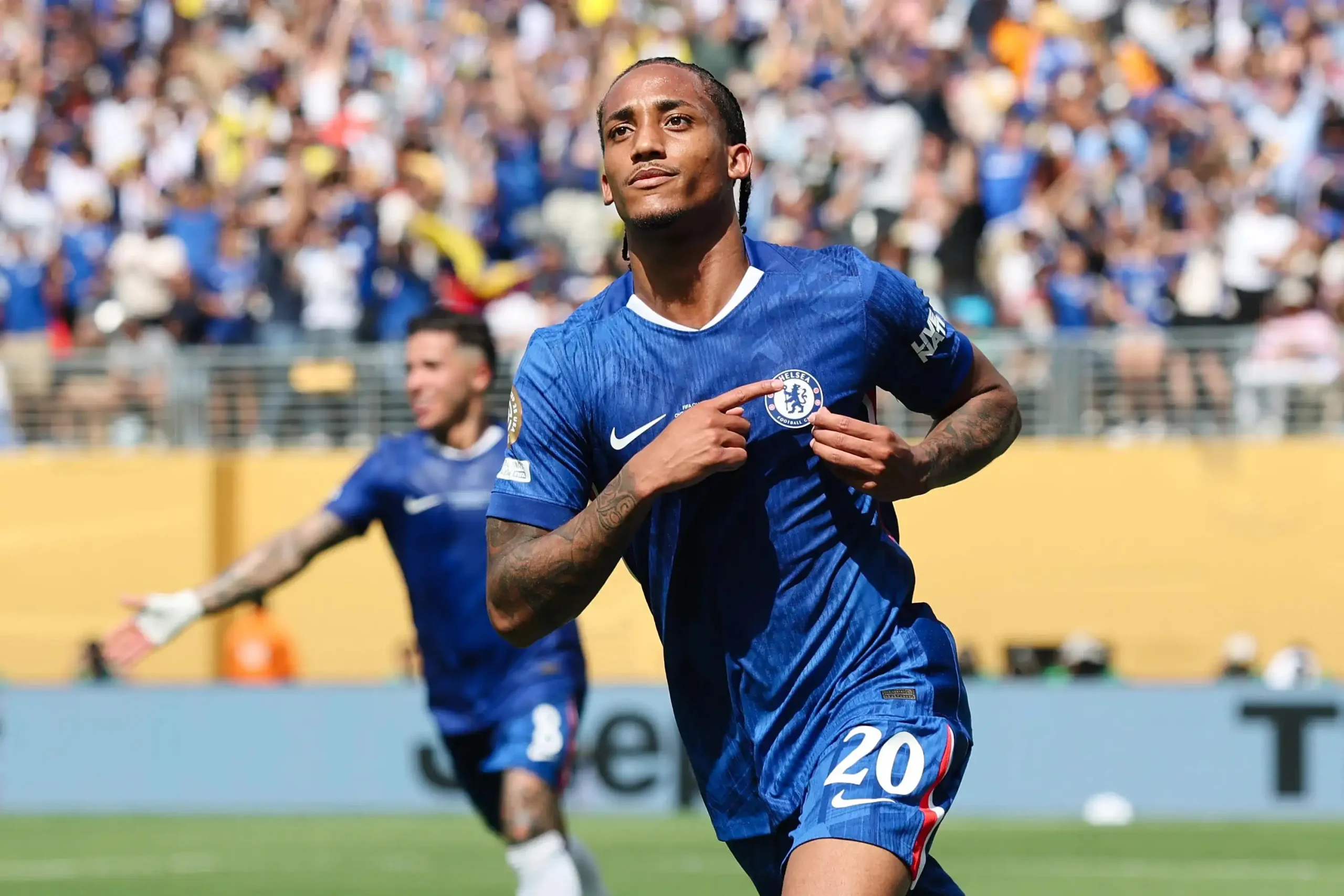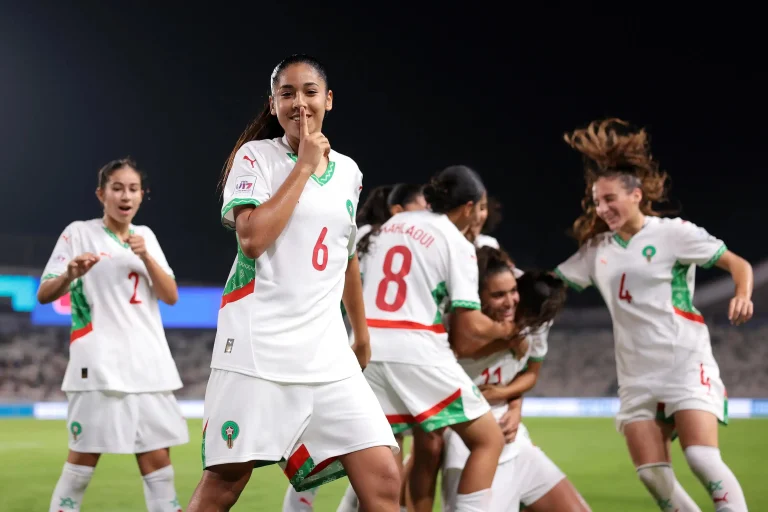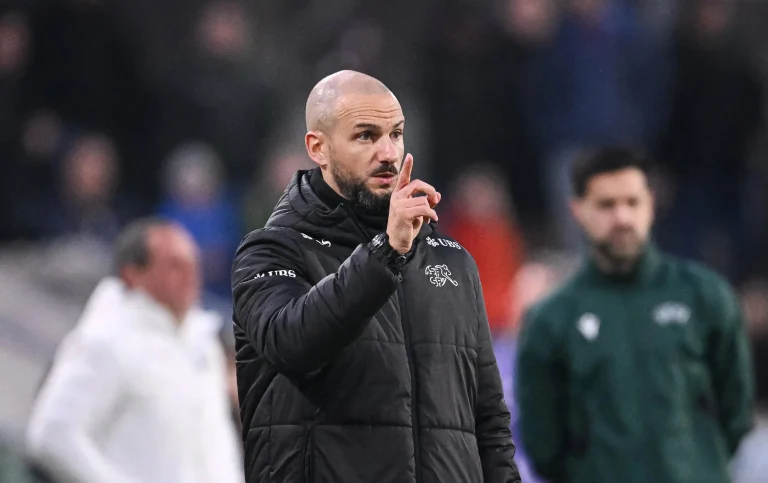With just a year to go before the greatest footballing nations battle it out at the FIFA World Cup 26™, the best club sides on the planet gathered in the United States for the inaugural FIFA Club World Cup™. The global extravaganza was not only a blockbuster event for the teams involved but offered a golden opportunity for players to step into the international limelight.
With glory on the line, the players involved performed with fire and flair. The cut-throat context of the competition offered the perfect setting for those who had been overlooked by their national teams to step up to the mantle and show how they could be the difference-makers for their countries at next year’s international bonanza.
FIFA looks at some of the stars who turned heads and earned national team consideration thanks to their standout showings at the Club World Cup.
Pablo Barrios (Atlético de Madrid, Spain)
At 22, Pablo Barrios is well aware of the intense competition for a spot in Spain’s starting line-up. The midfield maestro is vying for a berth alongside some of the most prominent players in his position worldwide, including the likes of Pedri, Rodri and Fabian Ruiz. But Barrios made a strong impression on US soil.
Having started all three of Atleti’s outings, he finished as the side’s top scorer thanks to a brace against Seattle Sounders FC and put in a stellar shift in the win over Botafogo. Spain coach Luis de la Fuente may well have strength to spare in his midfield roster, but should the need arise, Barrios has made a compelling case for selection.
Igor Jesus (Botafogo, Brazil)
Igor Jesus received his first call-up for Brazil in October 2024. Yet despite having found the net in the Seleção’s 2‑1 win over Chile in FIFA World Cup™ qualifying, the forward fell out of favour with previous head coach Fernando Diniz and failed to make Carlo Ancelotti’s first squad.
Following his impressive Club World Cup performances, Nottingham Forest’s latest recruit will surely be at the forefront of the Italian tactician’s mind as he assesses the firepower at his disposal. Up against some of the meanest defences on the planet, the striker won his individual battles, kept his side ticking in the final third and scored two of Botafogo’s three goals at the tournament, including the sole strike in the Rio de Janeiro outfit’s famous 1-0 victory over European champions Paris Saint-Germain.
Thiago Silva (Fluminense, Brazil)
Thiago Silva will turn 41 in September. While most players tend to have long since hung up their boots by that age, the veteran centre-back demonstrated once again at the Club World Cup that he defies convention and expectation.
Without a call-up to the Brazil squad since the FIFA World Cup 2022™, the defensive colossus marshalled the Fluminense rearguard all the way to the semi-finals. Although Silva’s former employers Chelsea prevented the Rio de Janeiro giants from making it all the way to the tournament’s showpiece fixture, the Flu captain demonstrated that he can still compete at the highest level against the game’s top players. Should Carlo Ancelotti be seeking an experienced leader at the heart of his Seleção backline, the ever-dependable Thiago Silva remains an obvious choice.
Alexander Barboza (Botafogo, Argentina)
It’s hard to find a place in Lionel Scaloni’s squad, but with Argentina already qualified for the 2026 World Cup, the coach could make room for a few tests between now and the finals. If he wants to experiment in defence, Alexander Barboza could be a good alternative. Barboza is also eligible to suit up for Uruguay and has openly expressed his desire represent the Celeste. He could figure into the plans of Marcelo Bielsa in the next year.
The Botafogo centre-back showed his physical strength during the Club World Cup. Playing out wide on the left, he was one of the pillars of the defence that stopped Paris Saint-Germain in the second round.
Miguel Merentiel (Boca Juniors, Uruguay)
Ever since Edinson Cavani and Luis Suárez dropped out of the national team picture, La Celeste have been searching for fresh attacking options. Darwin Nunez looks nailed on as a regular starter, but there are still spots up for grabs in Marcelo Bielsa’s squad – and Miguel Merentiel is staking his claim for one of them.
The Paysandu-born centre-forward was El Xeneize’s standout performer at the global club showpiece. His goal against FC Bayern München was one of the most eye-catching strikes in the competition and sparked wild celebrations among the Boca faithful at Miami’s Hard Rock Stadium.
Pio Esposito (Internazionale, Italy)
Renowned for their defensive grit and midfield magic, Italy are on the hunt for frontline potency as they look to reach their first World Cup finals since 2014. After trying out Mateo Retegui and Moise Kean, it would come as no surprise if Francesco Pio Esposito were to be given an opportunity.
The towering 20-year-old forward, who stands at six foot three inches tall (1.89m), enjoyed a prolific season on loan at Spezia, where he found the net 19 times in Serie B. With a goal and an assist in two matches for Inter at the Club World Cup, he proved to be one of the most potent attacking threats for Cristian Chivu’s charges.
Matheus Nunes (Manchester City, Portugal)
On the way to their recent UEFA Nations League triumph, Portugal started their final two outings against Germany and Spain with midfielder Joao Neves filling in at right-back. If Roberto Martínez wanted to restore the Paris Saint-Germain star to his natural role, Matheus Nunes would provide a viable option on the right side of the defence.
Having started out as a midfielder himself, the Portuguese-Brazilian has often been deployed at right-back by Pep Guardiola at Manchester City and would offer a more natural fit at full-back than Neves, while simultaneously freeing up the PSG technician and allowing him to operate in the middle of the park.
Gonzalo Garcia (Real Madrid, Spain)
Spain’s latest golden generation of Lamine Yamal, Pedri and Nico Williams has at times been lacking a focal point. But Gonzalo García’s Club World Cup campaign might just have demonstrated to head coach Luis de la Fuente that he is the missing piece in La Roja’s attacking puzzle.
Having been promoted to the senior squad from Real Madrid Castilla – the club’s B team – by Los Blancos head coach Xabi Alonso, Garcia took full advantage of Kylian Mbappe’s absence during the early stages of the side’s Club World Cup campaign. The Spaniard took home the tournament’s top scorer award with four goals, displaying his sharp instincts, technical finesse and tireless off-the-ball movement, and thus positioning himself as a prime contender for a call-up to the national team.
Joao Pedro (Chelsea, Brazil)
In his first two and a half appearances for new club Chelsea, Joao Pedro delivered an impact that few could rival. The Brazilian forward made his debut off the bench to help turn the tide in the Blues’ favour during their 2-1 quarter-final triumph over SE Palmeiras. He then went on to score three goals in his next two outings, including both strikes in the 2-0 semi-final victory over his former club Fluminense and a delightful dink over Gianluigi Donnarumma in the final .
Beyond his eye for a goal, the Ribeirao Preto-born ace also impressed by dropping back and linking up the play. His versatility makes him an interesting option for Carlo Ancelotti, who is still searching for the right No9 to spearhead Brazil’s forward line. While the managerial mastermind turned to Richarlison and Matheus Cunha in his first two games in charge, the position remains very much up for grabs – and Joao Pedro’s Club World Cup performance may well have given him a serious claim to the role.



